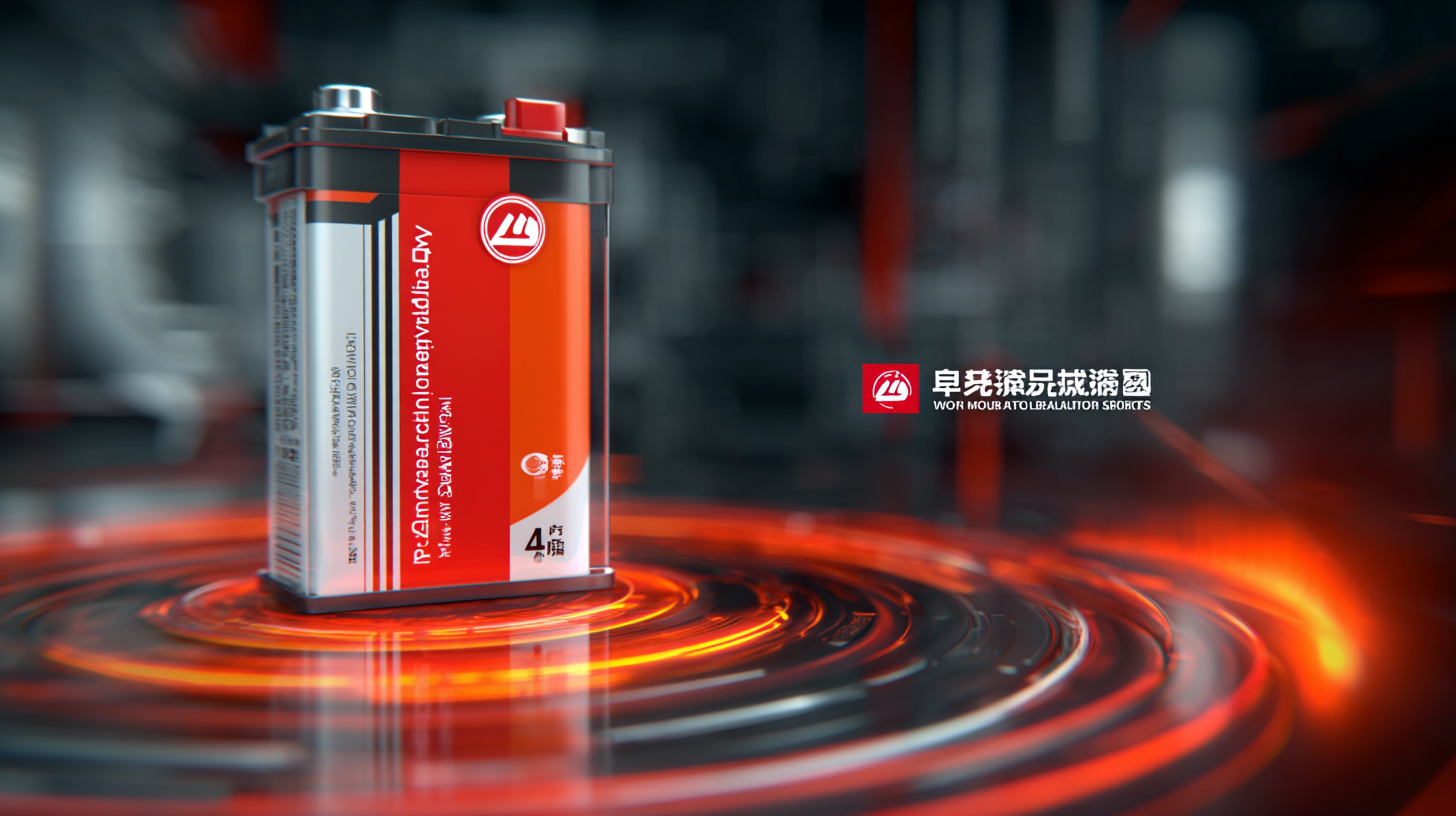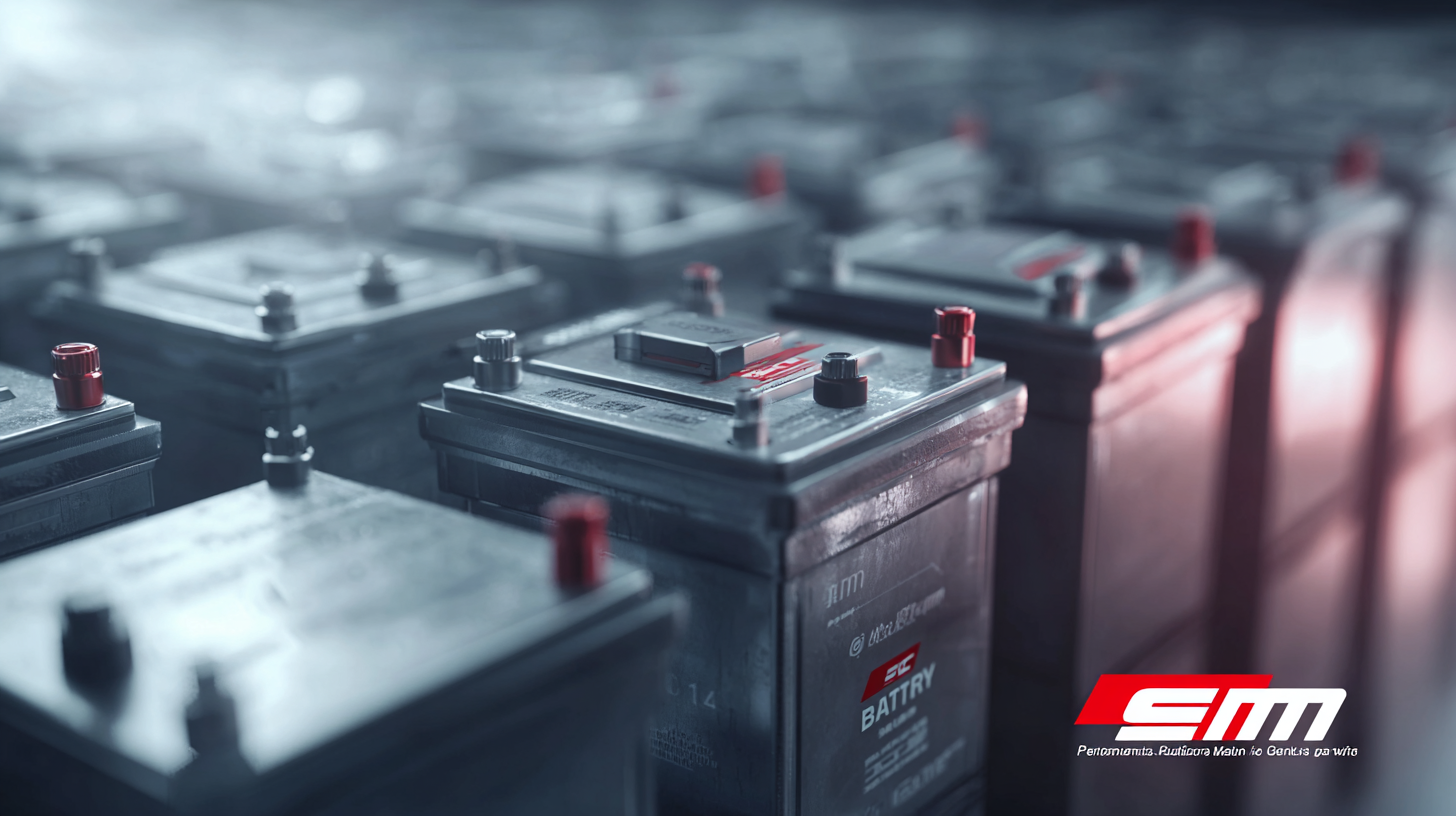Premium Automotive Batteries Made in China for Global Market Success
The automotive battery industry is experiencing a remarkable transformation, with predictions suggesting a market growth from USD 49.37 billion in 2020 to over USD 84.14 billion by 2025, according to industry analysts. As electric vehicles (EVs) become more mainstream, the demand for high-quality automotive batteries is surging, with an expected CAGR of 11.8% during this period.

China, as a global manufacturing powerhouse, is poised to play a pivotal role in this transition, leveraging its advanced manufacturing capabilities and supply chain efficiencies. Firms in China are not only meeting local demands but are also positioning themselves for global market success by adhering to international standards and embracing cutting-edge technologies.
This blog will explore the emerging trends and innovations in the automotive battery sector, highlighting how China's manufacturing expertise contributes to an evolving landscape characterized by sustainability and performance enhancements.
The Rise of Premium Automotive Batteries in China: A Global Perspective
The automotive industry is undergoing a significant transformation, with premium automotive batteries emerging as a crucial component in this evolution. China has become a leading player in the development and production of high-performance batteries, catering not only to domestic demands but also fulfilling the needs of the global market. The rise in electric vehicles (EVs) and the increasing focus on sustainable transportation have propelled Chinese manufacturers to innovate and enhance their battery technologies, positioning them as key competitors on the world stage.

One of the driving forces behind the growth of premium automotive batteries in China is the government's strong support for research and development in this sector. Policies encouraging clean energy and electric vehicles have fostered an environment conducive to innovation. Chinese companies are not only investing heavily in state-of-the-art battery technology but also establishing strategic partnerships with global automotive firms. This collaboration is enabling them to refine their products and expand their market reach, leading to a competitive edge in the international arena. As a result, the global perception of Chinese automotive batteries is shifting, with quality and reliability now at the forefront of consumers' minds.
Key Innovations Driving the Future of Automotive Battery Technology in 2025
As the automotive industry shifts towards electrification, the demand for high-performance batteries continues to soar. In 2025, key innovations are set to redefine automotive battery technology, particularly as manufacturers in China ramp up their production capabilities to meet global needs. One of the most significant advancements lies in the development of solid-state batteries, which promise higher energy densities and improved safety features compared to traditional lithium-ion batteries. This technology not only enhances driving range but also reduces the risk of fire, making electric vehicles more appealing to consumers.
Additionally, the integration of advanced battery management systems (BMS) is crucial for optimizing battery performance and longevity. These systems utilize artificial intelligence and machine learning to monitor battery health, manage charging cycles, and predict maintenance needs. By minimizing degradation and enhancing efficiency, these innovations extend the lifespan of automotive batteries, providing a robust solution for both consumers and manufacturers. With China leading the charge in battery production and technological advancements, the global market is poised for a significant transformation in the coming years, fostering a more sustainable automotive future.
How Chinese Manufacturers Are Meeting Global Demand for High-Performance Batteries
The demand for high-performance automotive batteries is surging globally, with the market expected to reach $100 billion by 2027, according to a report by Fortune Business Insights. Chinese manufacturers are at the forefront of this expansion, leveraging advanced technology and economies of scale to produce premium batteries that meet international standards. Companies such as CATL and BYD have emerged as leaders, capturing a significant share of the electric vehicle (EV) battery market, which alone is projected to grow at a CAGR of over 25% from 2021 to 2028.
Chinese battery manufacturers are increasingly focused on innovation, integrating cutting-edge materials and production techniques to enhance battery performance and longevity. Reports indicate that lithium-ion battery production in China accounts for approximately 70% of the global supply, and manufacturers are continuously investing in R&D to develop next-generation technologies, such as solid-state batteries. This commitment to quality and performance positions Chinese manufacturers to effectively meet the global demand for reliable automotive batteries, catering to the rapidly evolving needs of the automotive industry and contributing to the green energy transition worldwide.
This chart illustrates the performance metrics of premium automotive batteries produced by Chinese manufacturers. It highlights key attributes such as energy density, cycle life, charge time, and operational temperature range, showcasing how these products are designed to meet global demand for high-performance batteries.
Sustainability and Efficiency: The Cornerstones of 2025's Automotive Battery Landscape
As the automotive industry evolves, sustainability and efficiency have taken center stage, shaping the future of automotive batteries. According to a recent report by the International Energy Agency (IEA), global electric vehicle (EV) sales surged to over 10 million units in 2022, with a projection that this number will exceed 30 million by 2030. This shift underscores the need for advanced battery technologies that not only support the increased demand for EVs but also address environmental concerns. In 2025, we can expect to see an even stronger emphasis on sustainable battery production practices, with a focus on sourcing raw materials responsibly and increasing the recycling rate of battery components, which currently stands at only 5% globally.
Efficiency is not just a buzzword; it is becoming a critical factor for manufacturers. A report by BloombergNEF indicated that the cost of lithium-ion batteries has dropped by 89% since 2010, making EVs more accessible while also enhancing their performance. In 2025, the automotive battery landscape will likely feature innovations such as solid-state batteries, which promise up to 50% higher energy density compared to traditional lithium-ion cells. This advancement will enable vehicles to travel longer distances on a single charge, directly addressing consumer concerns about range anxiety. Manufacturers who prioritize these key elements of sustainability and efficiency will secure a significant competitive advantage in the global market.

Navigating Challenges: Strategies for Success in the Global Automotive Battery Market
The global automotive battery market is at a crucial juncture, driven by evolving trends and challenges. As manufacturers in China seek to establish themselves as leaders in premium automotive batteries, they must adeptly navigate an intricate landscape shaped by shifting supply chain dynamics and geopolitical factors. The transition from net exports to net imports in key markets, especially in Europe, emphasizes the importance of resilience in supply chain strategies. Companies must embrace innovative approaches to ensure continuity despite tariffs and supply disruptions, which have become increasingly common in today’s protectionist environment.
Moreover, integrating advanced software into manufacturing processes is becoming a pivotal strategy for success. This focus not only enhances operational efficiency but also aligns with the growing demand for smart, electrified vehicles that depend on sophisticated battery technology. As the industry gears up for 2025 and beyond, companies that leverage diversity in thought and talent will be better positioned to turn challenges into competitive advantages. Emphasizing these strategies will not only fortify supply chains but also promote sustainable development in the growing electric vehicle sector.
Premium Automotive Batteries Made in China for Global Market Success
| Battery Type | Capacity (Ah) | Voltage (V) | Weight (kg) | Energy Density (Wh/kg) | Market Demand (Units/year) |
|---|---|---|---|---|---|
| Lead-Acid | 60 | 12 | 15 | 30 | 20,000 |
| Lithium-Ion | 40 | 12.8 | 10 | 150 | 15,000 |
| Nickel-Metal Hydride | 50 | 12 | 12 | 70 | 8,000 |
| Solid-State | 30 | 12 | 8 | 200 | 5,000 |
| Gel | 70 | 12 | 18 | 40 | 10,000 |
